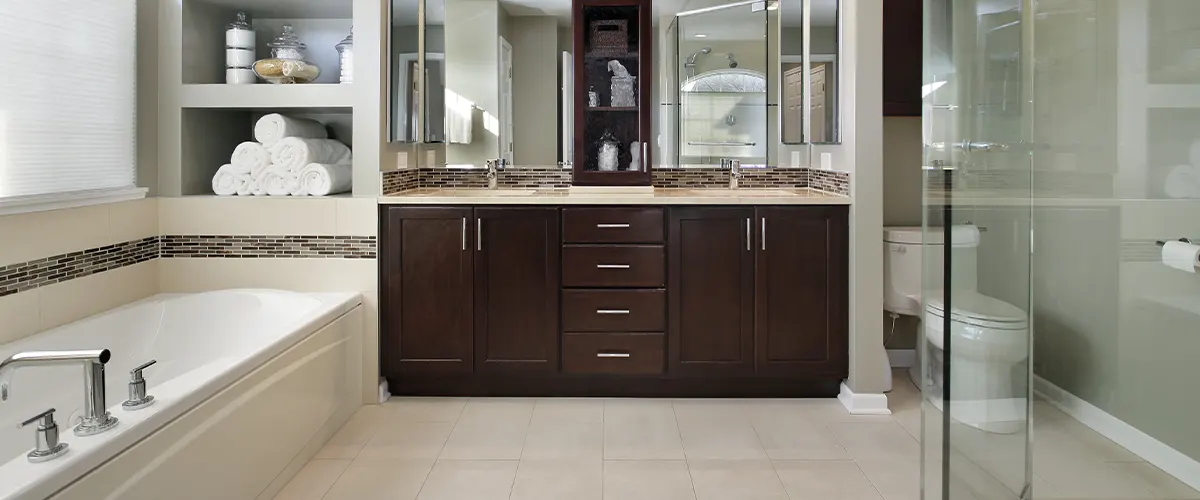
Benefits of Waterproof Flooring
When it comes to flooring, there are a lot of factors to consider. One of the most important is whether or not the flooring is waterproof. This is especially important if you live in a high humidity place or have kids or pets. In fact, waterproof flooring can offer a variety of benefits that other types of flooring can’t.
For one, waterproof flooring is much easier to keep clean. Spills and messes can be quickly wiped away without fear of damaging the floor. Waterproof flooring is also more durable than other types of flooring, meaning it will last longer and require less maintenance over time.
What Does It Take For A Floor To Be Waterproof?
Water damage is one of the most common causes of floor damage. When water comes into contact with wood or non-water-resistant flooring, it can seep into the board and to the core of the plank, causing the material to expand and warp. This type of damage is irreversible and can also lead to mildew growth.
Water-resistant floors are designed with an added barrier that prevents moisture from seeping in for a certain amount of time. However, it’s important to wipe away any standing water as soon as possible to avoid long-term damage.
Waterproof floors are the most durable option and can withstand constant exposure to water without sustaining any damage. If you’re concerned about possible water damage, then waterproof flooring is the best option for your home.
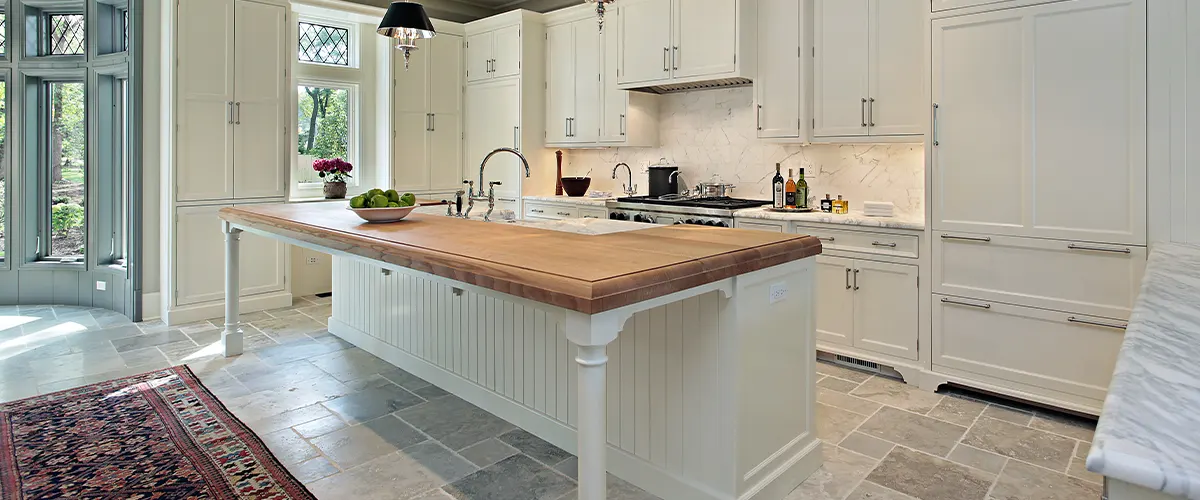
The Best Waterproof Flooring Options
Tile
Flooring is an important consideration for any home improvement project, but it is especially important in rooms that are prone to moisture and humidity. Tile floors are a popular option for bathrooms, kitchens, and basements because they can stand up to these conditions better than most other types of flooring.
Porcelain tile is the most resistant to moisture and humidity, due to its extremely low absorption rate. Ceramic tile is also a good choice for moisture-prone rooms, although it does not have the same absorption rate requirements as porcelain.
For the best results in a moisture-prone room, it is recommended that you choose unglazed tile. Unglazed tile is more slip-resistant than glazed tile, making it a safer choice for high-traffic areas. In addition, unglazed tile is easier to clean and maintain than glazed tile. Opt for tile if you want waterproof bathroom flooring for everyday use.
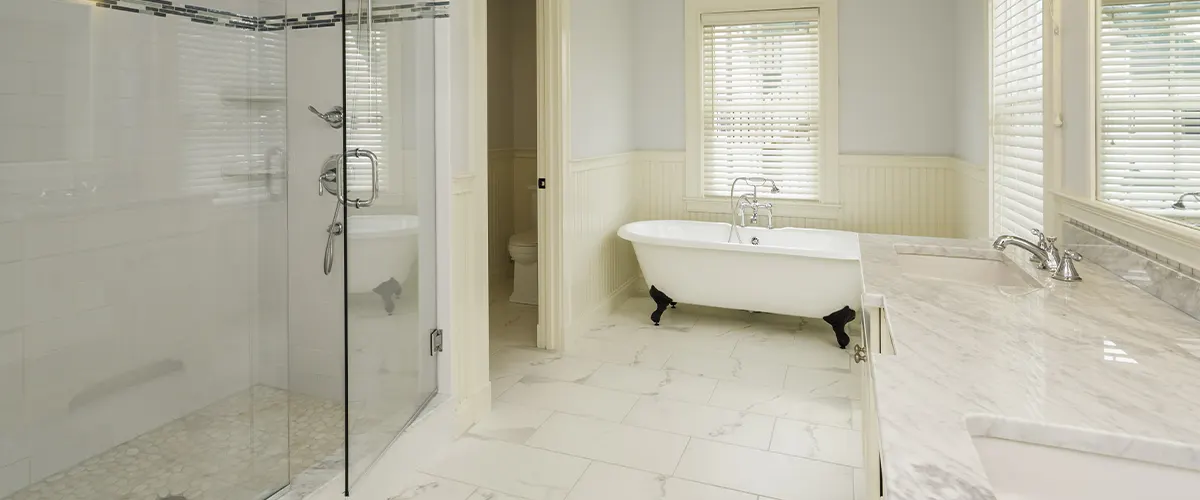
Vinyl Plank
There’s no denying that vinyl plank flooring is having a moment. Its popularity has skyrocketed in recent years, and there are plenty of reasons why. First and foremost, vinyl plank is incredibly versatile. It can be made to look like just about any type of flooring, from classic hardwood to modern tile. And because it comes in planks rather than sheets, it’s relatively easy to install.
But one of the most appealing things about vinyl flooring is the fact that it’s a waterproof floor. This makes it ideal for bathrooms and kitchens, where spills are common.
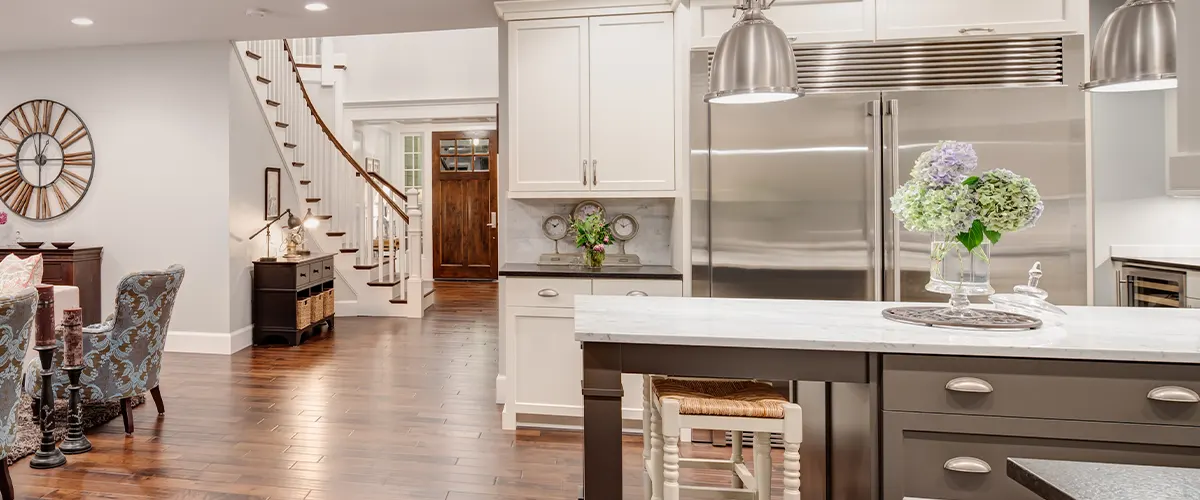
Sheet Vinyl
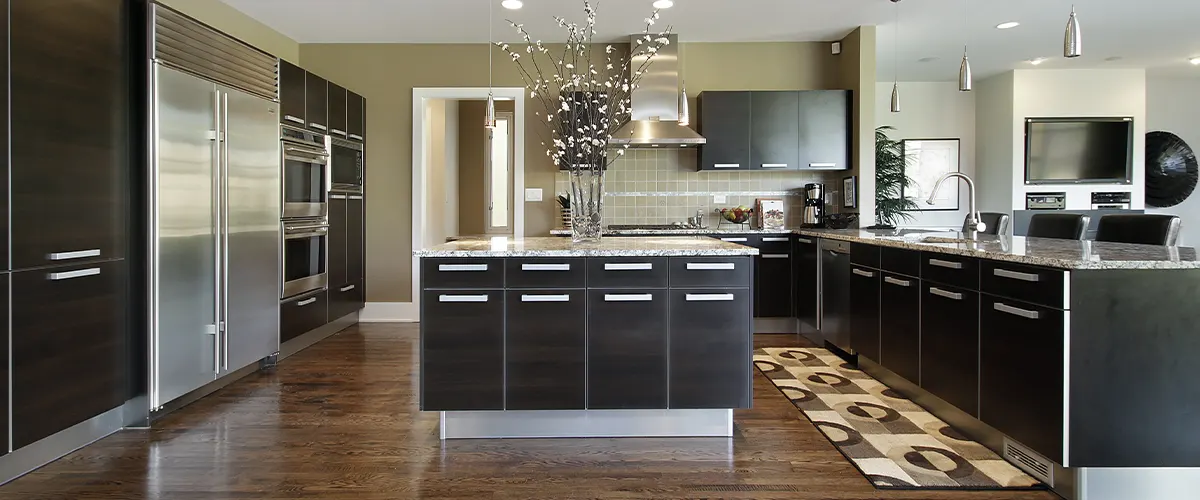
Laminate
Laminate flooring is a popular choice for many homeowners because it is durable and easy to maintain. However, laminate flooring is not typically considered to be waterproof. Waterproof and water-resistant laminate flooring does exist, but it is not standard.
If any water gets past the seams of the planks, the fiberboard core of even the best laminate can warp and the floors will be damaged. Waterproof laminate may be able to withstand a spilled cup of water or pet accident, but it is no match for a flooding dishwasher. Homeowners should be aware of the limitations of waterproof laminate flooring before making a purchase.
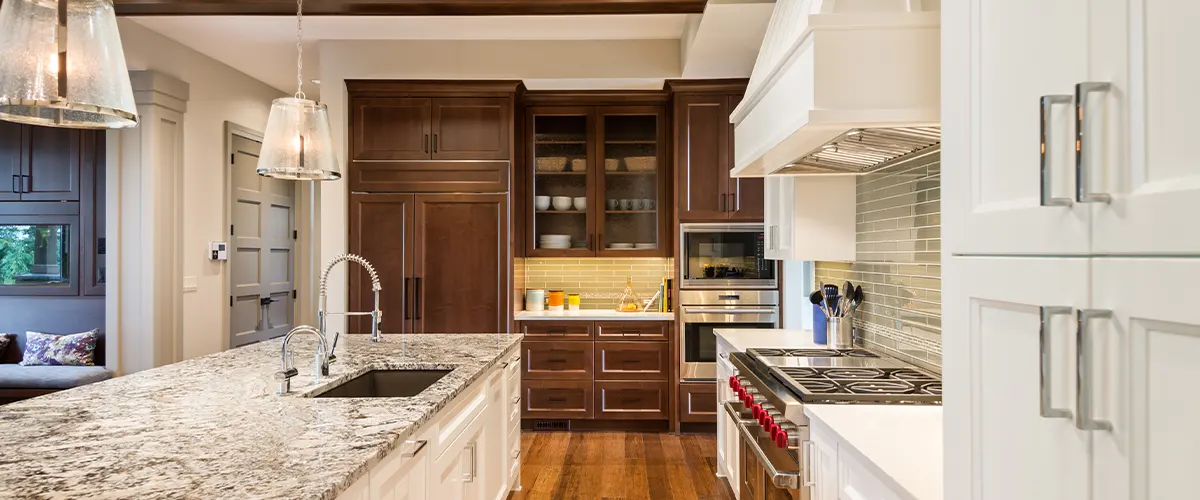
Conclusion
So, what’s the best waterproof flooring for your home? It really depends on your needs and budget. If you want something more affordable, vinyl plank flooring is good. And if you need something that can withstand water damage, laminate or ceramic tile are both good choices.
No matter what type of flooring you choose, our team can help you install it quickly and efficiently. Get in touch with us today to learn more about our waterproof flooring options!
